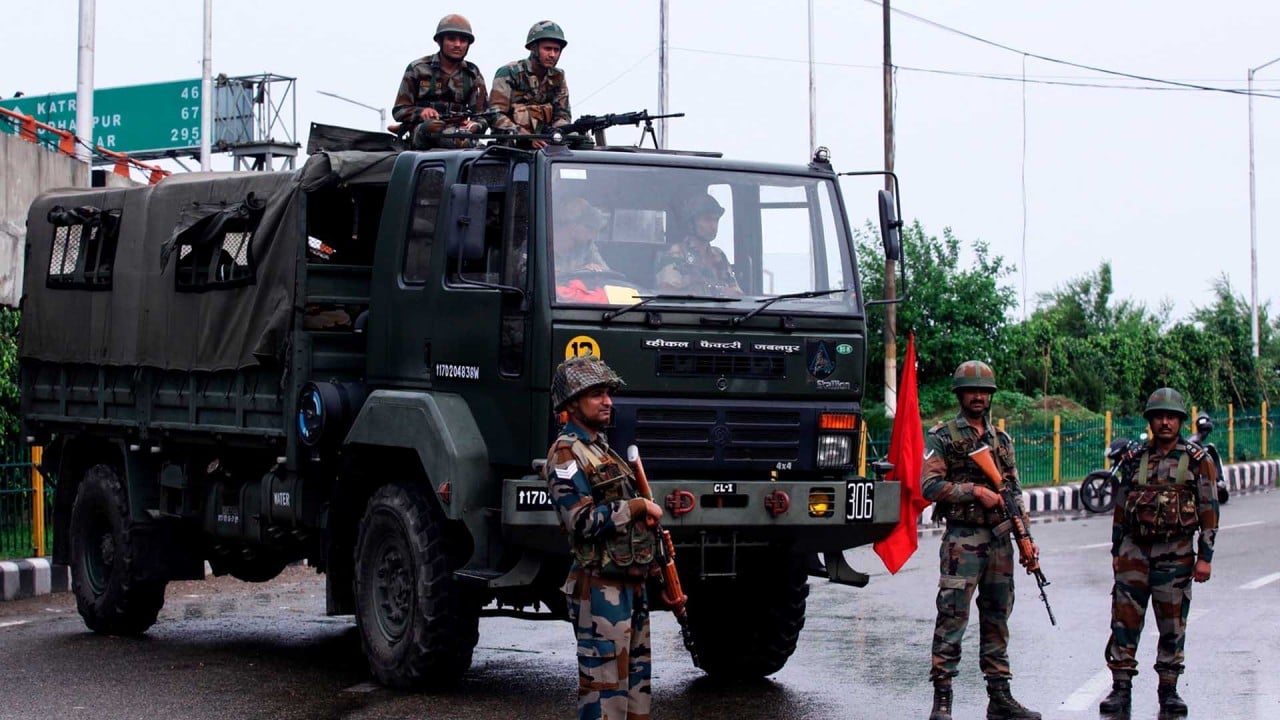
03:08
India bans dozens of Chinese apps, including TikTok and WeChat, after deadly border clash
Business booms for Indian app Roposo after Chinese rival TikTok banned
- The Indian government banned dozens of Chinese apps last month after a brutal border conflict between the two countries that left 20 Indian soldiers dead
- Reinforcing the new hard line, the Indian government has also asked Chinese companies such as ByteDance, which owns TikTok, to answer questions about its apps
Within hours, an avalanche of new sign-ups pushed the servers of one of its Bangalore-based rivals, Roposo, to breaking point.
We have a viable chance to become the world’s fourth technology hub after the US, China and Russia

“It was a rocket ship instant for the country’s app start-ups,” said Naveen Tewari, founder of InMobi, the start-up that owns Roposo. “We have a viable chance to become the world’s fourth technology hub after the US, China and Russia.”
Reinforcing the new hard line, the Indian government has also asked Chinese companies such as ByteDance, which owns TikTok, to answer 77 questions about their apps, including whether they censored content, worked on behalf of foreign governments or lobbied influencers.
‘The world’s against China’: India’s ICFA comrades keep the faith
India’s Information Technology Ministry has given the companies three weeks to respond to the questionnaire and said unspecified follow-up action would be taken, two sources said.
The banned apps were asked whether they acted at the behest of any foreign government to edit, promote or demote any content.
“In the aftermath of the Pulwama Attack of 2019, did the company/app censor content relating to the attack or its perpetrators?” the question reads.

05:27
The Kashmir conflict
TikTok said it was working to respond to the ministry’s queries and that it complied with all Indian laws, adding that users’ data security and privacy were its top priorities.
A source familiar with the government’s thinking said the queries were in line with federal procedures and the same questions were sent to all affected companies.
One question seeks to investigate if company executives in India communicated with film stars, social media influencers or journalists to promote any content, even if the communication was not for commercial purposes. Other queries were around advertisers, business structures, taxation practices and privacy policies, the document showed.
As China-India tensions rise, can New Delhi rely on Russia as a defence partner?
In a June 30 statement, TikTok said it was invited to meet government stakeholders to provide clarifications, and has and would continue to comply with security and data privacy requirements under Indian law.
The Chinese app has in the past emphasised its efforts to moderate content and said its policies don’t permit videos that risk people’s safety, promote physical harm or glorify violence against women.
TikTok has faced censure from courts, women’s groups, users and governments for content seen as sexually explicit or for the depiction of events like acid attacks on women. Roposo and other Indian TikTok imitators, on the other hand, market their content as fun that’s more in line with India’s relatively conservative culture.
Many Indian apps have a late start, and most lack the sophistication and user-friendly interfaces of TikTok. Nor do they have the investment appetite and the deep pockets of the likes of Bytedance, which is the world’s most valuable start-up and was valued at more than US$100 billion in May.
Still, the Indian government’s ban throws open multiple, billion user business models, said Manjunath Bhat, a senior director analyst at Gartner.
“India’s entrepreneurs didn’t lack talent, they were just short on ambition,” Bhat said. “The combined effect of the coronavirus lockdown and the app ban presents a never before, never again opportunity.”
With Indian names like Chingari (Hindi for spark), Mitron (meaning friends) and Bolo Indya (Tell me, India), a string of small Indian TikTok challengers, have been notching titanic user numbers since the ban on the Chinese apps. Some like the Moj app are barely weeks old.
Battlers in other categories have also received a windfall after other Chinese names like popular image scanner CamScanner were also blocked. The new contenders from a variety of categories have three themes in common. Their apps are made in India. Their data is stored in India. Their content, mainly in regional languages, is attuned to local sensibilities.
The followers of an Indian spiritual guru, Sri Sri Ravishankar, created Elyments, an all-in-one rival for WhatsApp, Facebook and Instagram. Asia’s richest man Mukesh Ambani, of the Reliance conglomerate, launched JioMeet, a video conferencing rival to the popular San Jose-based Zoom.
Roposo itself is getting a deluge of influencer marketing agencies and celebrities wanting to come aboard. It’s discussing contracts with celebrity users and content creators. It’s investing in camera filters and Indian themes.
“This isn’t an opportunity just for entrepreneurs,” said Tewari. “Investors ought to be rushing over.”
Additional reporting by Reuters


